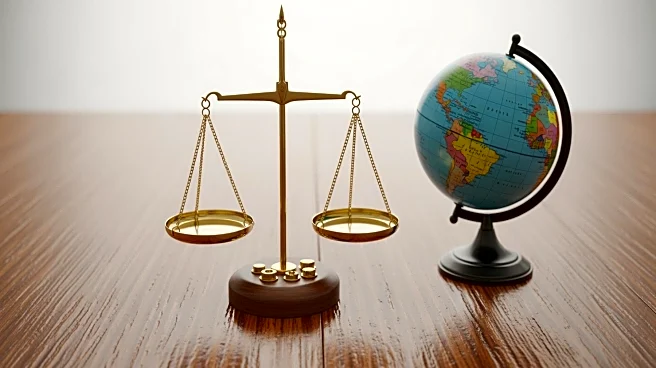What's Happening?
President Trump has initiated a military campaign targeting drug traffickers in the Caribbean, raising legal questions about the operation's legitimacy. The administration claims the actions do not constitute 'hostilities' under the War Powers Resolution,
allowing them to bypass congressional approval. The campaign has resulted in the destruction of vessels and loss of lives, with the administration justifying the actions as necessary to combat drug trafficking and destabilize the Venezuelan regime. However, the legal rationale is being scrutinized, as the campaign resembles a military conflict without formal congressional authorization.
Why It's Important?
The military campaign against drug traffickers in Venezuela highlights the ongoing debate over presidential war powers and the legal frameworks governing military interventions. The administration's actions could set a precedent for future military engagements without congressional oversight, raising concerns about executive overreach. The situation also underscores the complexities of U.S. foreign policy in Latin America, where drug trafficking and political instability are intertwined. The outcome of this legal and political debate could influence U.S. military strategy and its approach to international law.
What's Next?
Congress is expected to vote on a resolution to limit further military action in the Caribbean, which could challenge the administration's current strategy. The outcome of this vote will be crucial in determining the extent of presidential authority in military operations. Additionally, the legal arguments presented by the administration may face further scrutiny in courts, potentially leading to a reevaluation of the War Powers Resolution's applicability in modern conflicts.

















